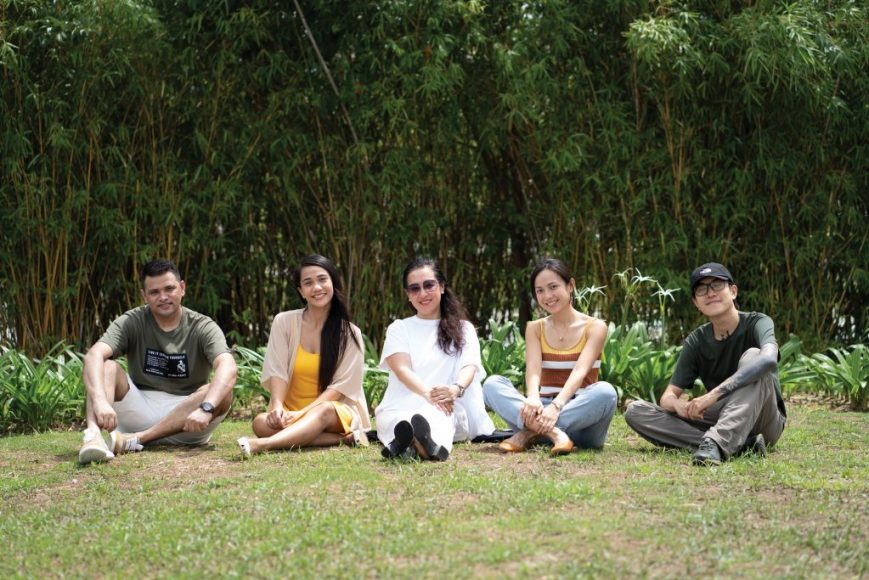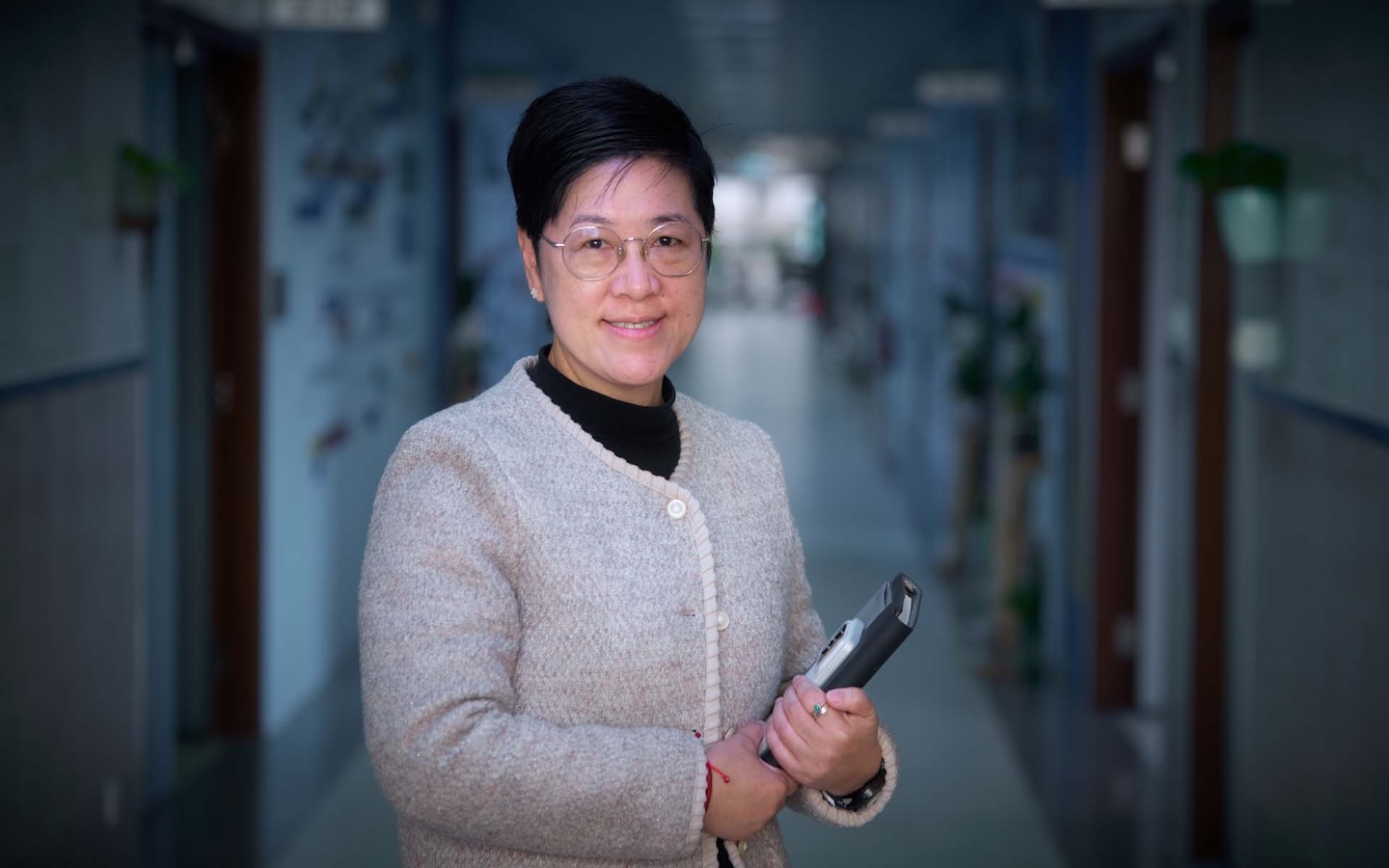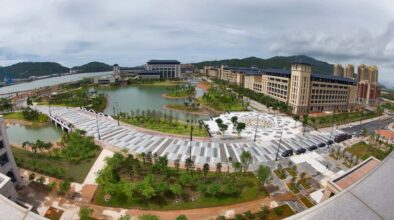Only a handful of people are ever labelled as ‘heroes’ – and most of these probably wouldn’t call themselves one. But nevertheless, thousands of kind-hearted souls across the world have done something extraordinary to help others in times of difficulty. We meet a group of young heroes from Macao whose stories are moving, inspiring and motivating.
The world has been fascinated with heroes ever since tribes began swapping stories around the campfire in the early years of man. And this fascination continues to live with us today in movies, books and comics that focus on superheroes who inspire us, encourage us to do good and represent the qualities we would all like to possess. However, we also have an equally fervent interest in real heroes: those people who go the extra mile to help or save others in times of difficulty or danger. A hero can be anyone – a normal person who, in the face of danger, combats adversity through feats of ingenuity, courage or strength to help someone else.
What characteristics or qualities make a hero? According to American psychologist Philip Zimbardo – who is perhaps best known for his controversial 1971 Stanford Prison experiment, which focused on the struggle between prisoners and officers – we all have inner heroes and the potential for heroic actions. “Simply put,” said Zimbardo during a talk in 2011, “the key to heroism is a concern for other people in need – a concern to defend a moral cause, knowing there is a personal risk, done without expectation of reward.”
Based on this definition and our own moral compass, we have selected a group of young people living in Macao who we consider heroes. These men and women, all under 35 years old, each have an inspiring story to tell and we are proud to call them both selfless and courageous. They come from ordinary backgrounds and have regular jobs. They have each helped other people in a time of crisis, be it fighting crime, volunteering for charity or saving animals’ lives. Meet our selfless, inspiring young heroes…
The crime-fighting hero
When you think of the term ‘hero’, you may conjure up an image of a crime-fighter who doesn’t think twice about their own safety when it comes to tackling a dangerous offender. In the case of Ram Bahadur Kutal Chhetri – a security officer at the Wynn Macau entertainment resort – you’d be right. In 2018, the brave, young Nepalese man, who moved to Macao only eight years ago, was stabbed as he tackled a thief. The thief got away but Chhetri’s hot pursuit of the criminal led to both an arrest and a crime-fighting award.
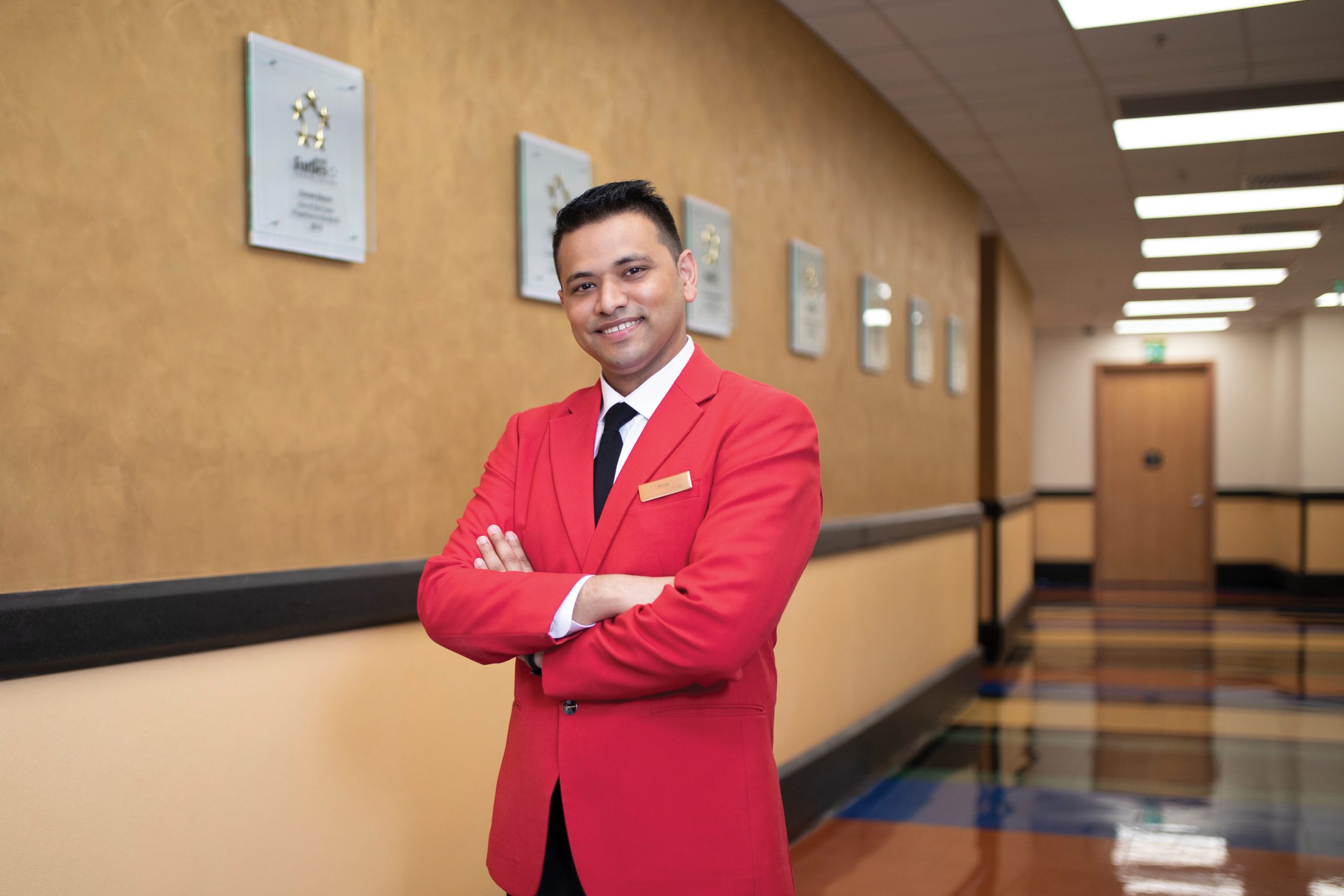
Chhetri was walking along the busy Avenida de Almeida Ribeiro near Senado Square on a summer’s evening in August when he suddenly heard a woman shouting for help. He turned and saw a man running off down the street with what looked like a handful of money, dodging the pedestrians along the way. Without a moment’s hesitation, Chhetri took to his toes and ran after the thief. The chase went on for several minutes until Chhetri caught up with the offender at the end of a street and wrestled him to the ground. But the thief struggled frantically and produced a knife. He stabbed Chhetri twice on his left arm before getting back to his feet and taking flight. Chhetri also got back on his feet and chased the offender into a car-park, where he realised the thief’s face would be caught on CCTV.
Chhetri stopped pursuing the thief. His arm was covered in blood. The offender ran off as Chhetri nursed his own injuries. “I couldn’t feel any pain when he stabbed me,” says the 32-year-old. “All I’d wanted to do was to capture him.” Chhetri gingerly got back to his feet but didn’t think about his own safety as the blood flowed down his arm. Instead of first going to hospital, he went straight to a nearby police station and reported the crime. The information he provided at the station proved vital. The police officers immediately went out into the city and caught the thief. Without Chhetri’s accurate details and quick-thinking in going straight to the police station, the arrest may never have happened. It was only once Chhetri had relayed all the details that he finally thought of himself and was sent in an ambulance arranged by the police to hospital where his knife wounds were stitched up.
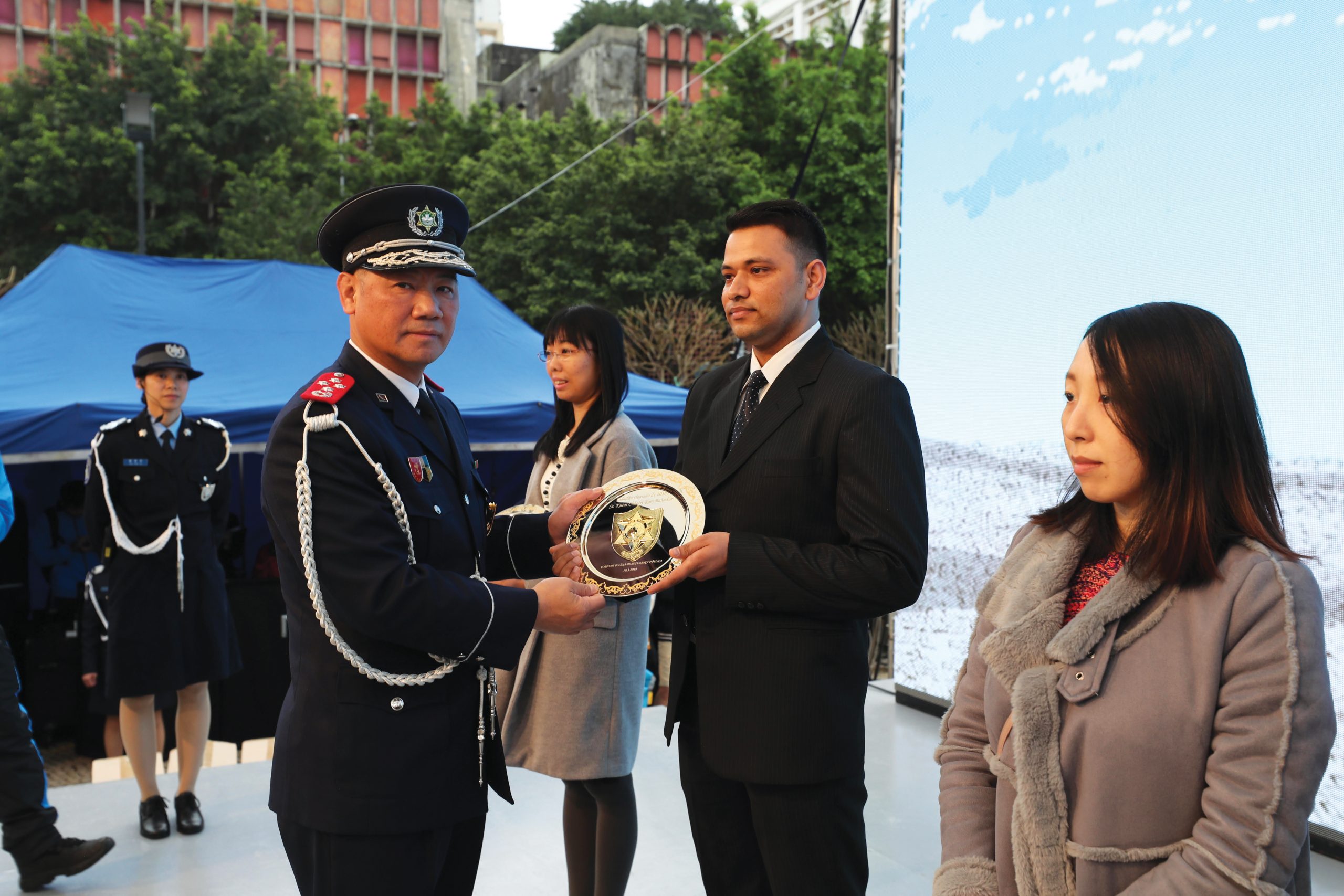
Last year, Chhetri received a Good Citizenship Award from Macao’s Public Security Police Force for his brave actions that led to an arrest. He believes that he was acting on instinct when he fearlessly chased after the thief and he reckons he only ‘gained this instinct’ when he started working as a security guard. “Because I occasionally receive training from my current company on how to tackle criminals while also protecting myself,” he says, “that’s why I have no fear in chasing bad guys anywhere on the streets. There are always bad people in our society but if we take action immediately, we can reduce crimes and help a lot of people. ‘Keep helping others’ is my personal motto.”
The hero of the voiceless
For those who can’t cry for help, there are heroes waiting to come to their aid. Heroes like Delic Tang. In 2017, the Macao resident came across a post on Facebook about lost dogs in the city. He read it and realised that when owners lose their dogs, sometimes they don’t search for and reclaim the animals, leaving them to effectively become strays. And the dangers on the streets are numerous for these lost pets. “They can starve to death or be hit by cars,” stresses the 29-year-old. “Even if they are taken to the government’s Municipal Kennel, they may face euthanasia if they don’t have a microchip and nobody comes to claim them within seven days.”
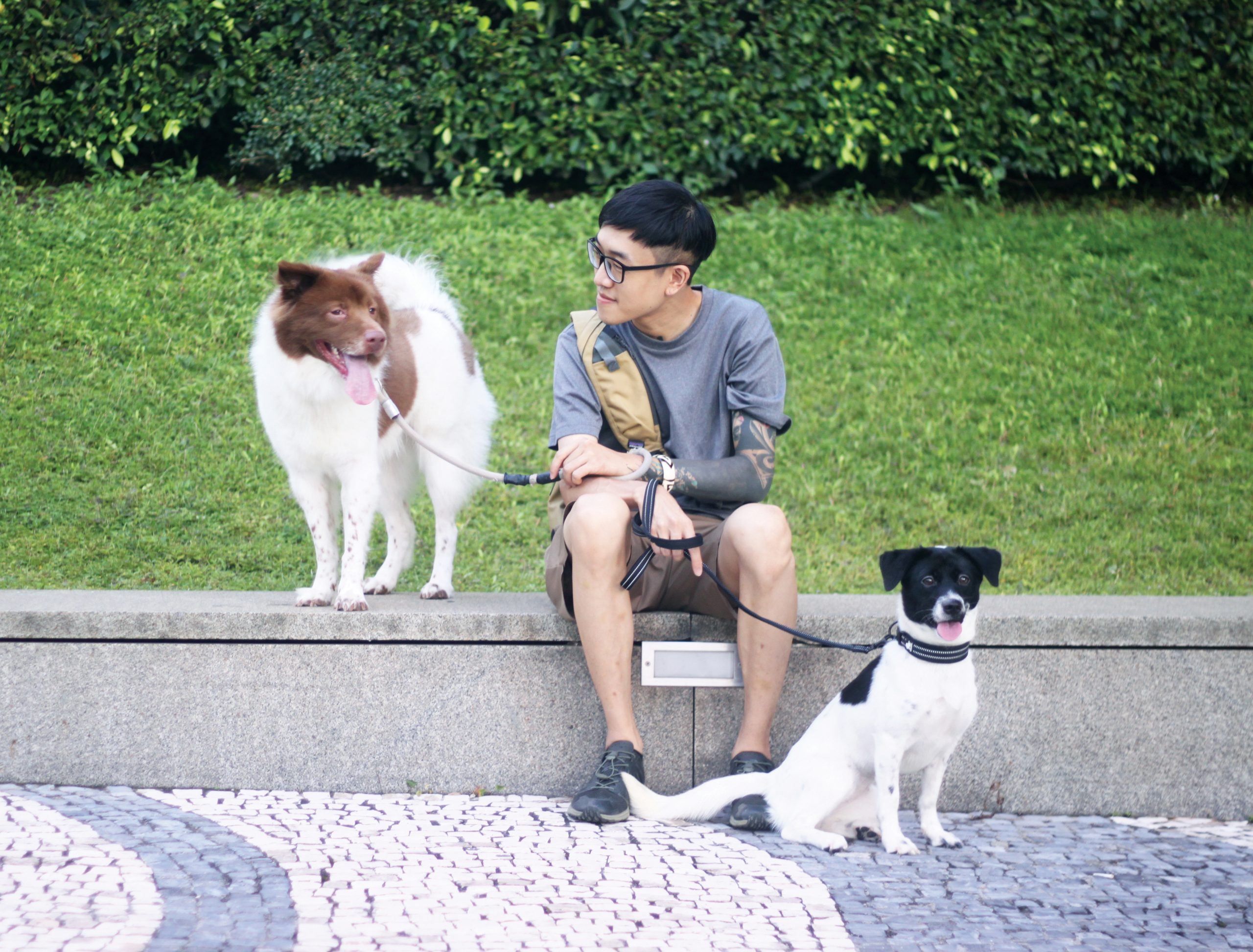
The Facebook post inspired Tang to become a volunteer animal rescuer – and that doesn’t mean he joined a group or charity. He does this entirely off his own back. In late 2017, he started hitting the streets himself in a bid to save as many lost animals as he could. He says he has enjoyed many memorable experiences since then and believes he and the city’s other animal rescuers have done a lot of good in saving the lives of lost pets.
One experience Tang recalls happened in 2018. He says he saw another Facebook post saying that a dog had been lingering around the bottom of a staircase at the foot of an old building for a few days. So he headed off at night, taking several leashes, towels, food, gloves and a small cage with him. “It was like a negotiation scene that you see in the movies,” he says. “I handed out food and water to the dog but I was also afraid of being bitten because I was rather inexperienced at that time.” It took Tang an hour to coax the dog into the cage. The next day, the pet’s microchip was scanned at a veterinary clinic and the owner was contacted. “She was very emotional when she was finally reunited with her dog,” says Tang. “She cried and thanked me again and again.”
Tang has helped many street animals in Macao to be rehomed or reunited with their owners. He says he loves pets and now keeps 10 rescued animals in his apartment, including cats, dogs, birds, rabbits and guinea pigs. “I have learned a lot from taking care of different kinds of animals,” he says. “Each animal has helped me to understand that it’s important to think about things from their perspective. My personality has changed a lot since I became a rescuer.”
Tang, a former photographer and clothes boutique manager, founded a vegan café called Rara Poesia Vegana in the heart of Macao earlier last year. It continued as a takeaway and delivery service for a couple of weeks during the COVID-19 outbreak in the city but Tang says it’s been doing good business. “By serving healthy and tasty vegetarian food,” he says, “I want to demonstrate that we can maintain a healthy diet without hurting animals. Giving your life to saving and helping animals may be a heroic act. If it is, there are lots of heroes out there trying to do some good.”
The storytelling hero
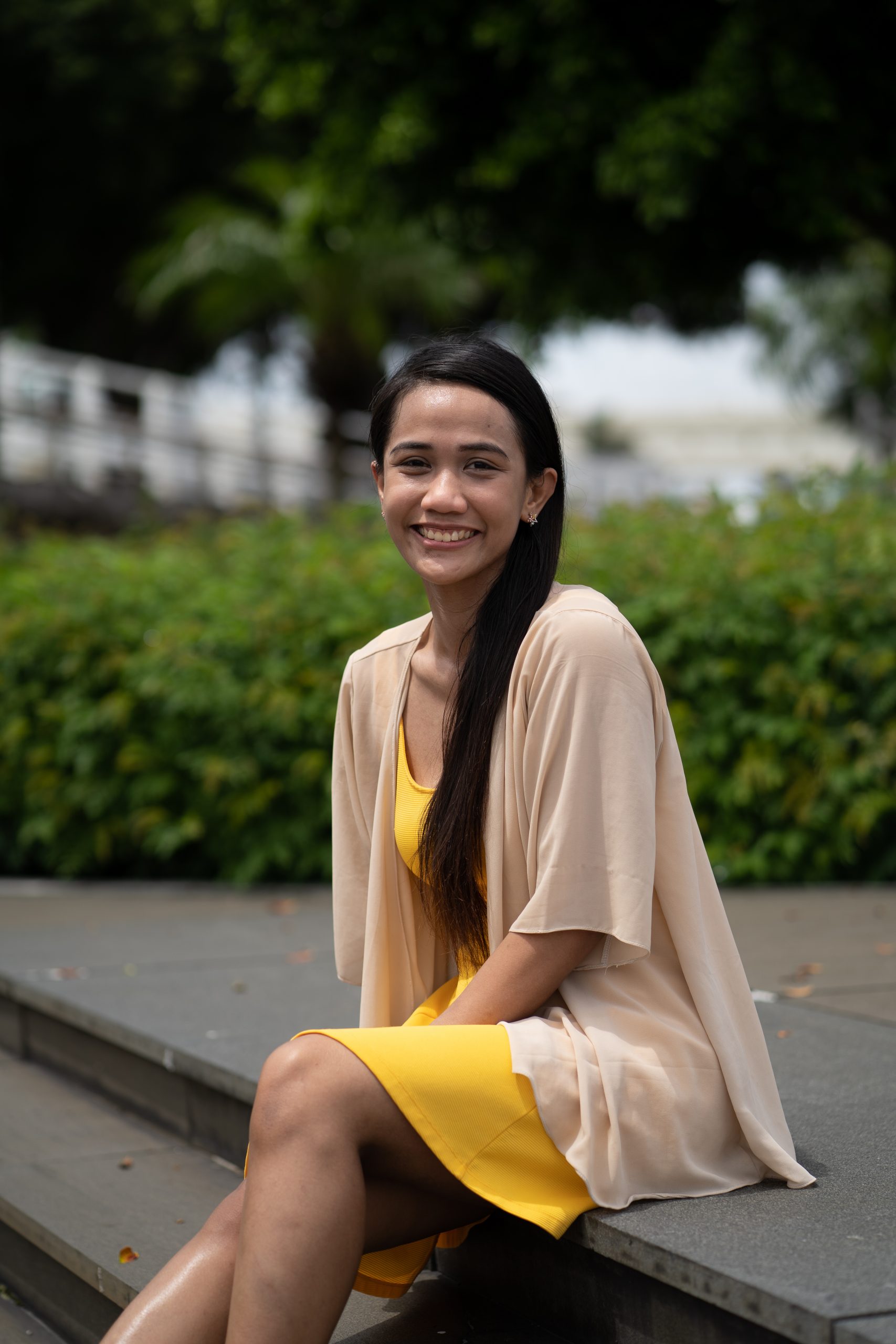
People can go to great lengths to provide a good life for their families. Some see this as no less heroic than tackling thieves or saving stray dogs. Growing up in Tondo – a poor district in Manila, capital of the Philippines – Sheena Flor Tamayo had a tough start to her life. But she was determined to give her three younger sisters a chance to better themselves. So in 2016, Tamayo moved to Macao so she could get a better salary than she could in the Philippines and so she could pay for all three of her sisters to go to university.
A tourism management graduate from the University of the City of Manila, Tamayo now works in the housekeeping department of a local hotel. The 30-year-old admits that life was difficult in her early days in Macao due to the language barrier, cultural differences and unfamiliar food. But she says the biggest challenge she’s consistently faced is her work. She says – during ‘normal times’ and obviously not during the current pandemic – that she needs to clean 14 rooms every day in order to keep up with the frequent check-ins. She claims that sometimes the guests leave the rooms in a bad condition, with litter, vomit and even urine all over the place. “Sometimes,” she says, “I cry and ask myself ‘why do I have to deal with this?’”
These experiences inspired Tamayo to write ‘The Cinderella in Macao’, a short story about her life as a housekeeper in the city. Written in the Filipino language of Tagalog, the story earned her the Jury Prize and the Macao Special Award at the sixth Taiwan Literature Awards for Migrants last year. Established in 2014, the annual awards aim to recognise the literary and creative talents of migrant workers living in Taiwan, Hong Kong, Macao, Singapore, Malaysia, Japan and Korea. Tamayo’s story beat hundreds of other entries to take the Jury Prize.
“‘I wait for the next room to be cleaned, like opening my gifts one by one. It can be a wonderful surprise or a painful experience’,” quotes Tamayo. “That’s straight out of my story. I called myself Cinderella in the story because she is one of my favourite characters of all time. But in my story, Cinderella does not dream of becoming a princess. She just works hard for herself and for her family.”
Tamayo may not be a ‘hero’ for writing her story and gaining awards – although she’s certainly gifted with a pen and her imagination. Tamayo is a ‘hero’ because, thanks to her hard work and facing her difficult job with a smile on her face, she has so far been able to put two of her sisters through university in the Philippines. They have finished and excelled, with just one sister left to go. Plus, Tamayo was able to buy the family a new home in the Philippines last year. “My family is happy that I’ve been able to help,” she says. “It’s all been worth it to help my sisters get a good start in life. And now hopefully they can help others too.”
The hero of a community
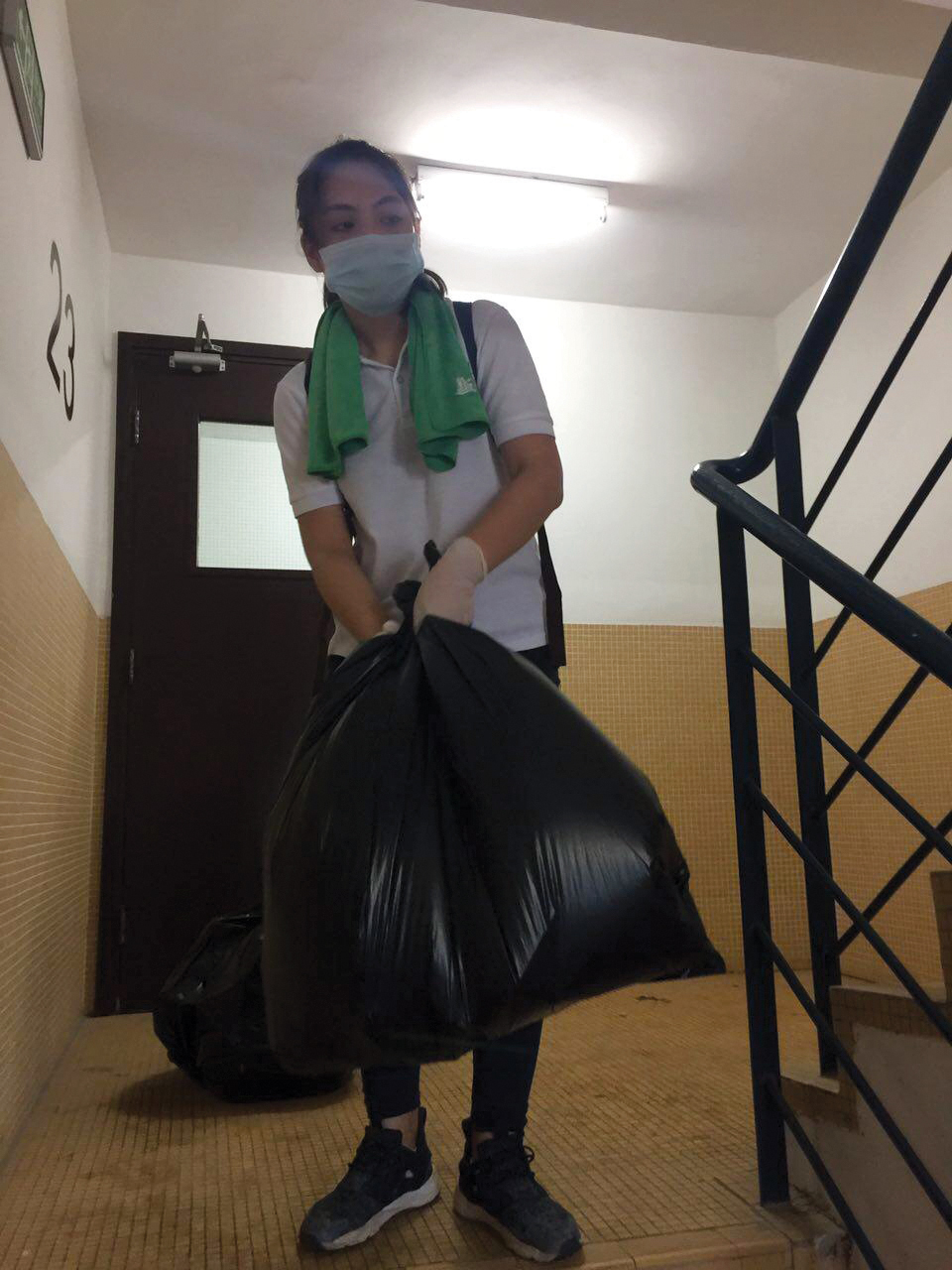
Emma Chan has also made a great effort to support her family – but by ‘family’ we mean her community. When Typhoon Hato wreaked havoc in Macao in August 2017, she joined hundreds of young people who stepped up to voluntarily rebuild their hometown. “The damage Hato did to Macao was unprecedented,” says the 27-year-old, recalling the floodwaters that rose above waist height and all the debris that lined the city’s streets – not to mention the 12 people who lost their lives during the disaster and the many more who were hurt. “I was shocked. I wanted to do something to help.”
Immediately following the devastating storm, Chan volunteered for a local group which was helping out in the Ilha Verde district and the areas around nearby Rua do Patane – areas that make up the community near her own home. These places lost power and water for more than a week after the typhoon. “We visited every apartment with an elderly resident,” she says. “We found out who they were thanks to a list we were given by social workers who worked in those areas. We checked on the residents’ wellbeing and found out whether they needed help with food or their water supply – or even just getting their rubbish to the local bins.”
Not just content with giving every second of her time to the elderly and vulnerable in the wake of Hato, Chan, who is unemployed but nevertheless gives her time to unpaid voluntary projects, also took on any tasks she could around those neighbourhoods. “I basically helped out with everything I could,” she says. “If I could see something that needed doing or another volunteer or worker who needed help, I’d pitch in. This ranged from providing lights for water trucks that tried to enter dark alleys to clearing rubbish from the streets.”
Chan praises the efforts of many secondary school students who pitched in at the time. She says she met them when she was doing her regular home visits. “I would carry food or spare rubbish bags up to the elderly,” she says, “but these young people would often carry really heavy water buckets up 20 or 30 floors to the elderly and vulnerable. I lost count of how many times a secondary school pupil would say they had no money to donate to the elderly so instead they would do all the hard physical work to make up for it. They were the real heroes.”
Chan says the senior residents were grateful for the work, time and effort that young volunteers like her put in following the tragedy of Hato. “They always welcomed us and tried to give us food to say thank you,” she says. “They were so grateful that society had not forgotten them at that difficult time for the city. To be honest, anyone who helped get Macao back on its feet after Hato should be remembered as a hero.”
The hygiene hero
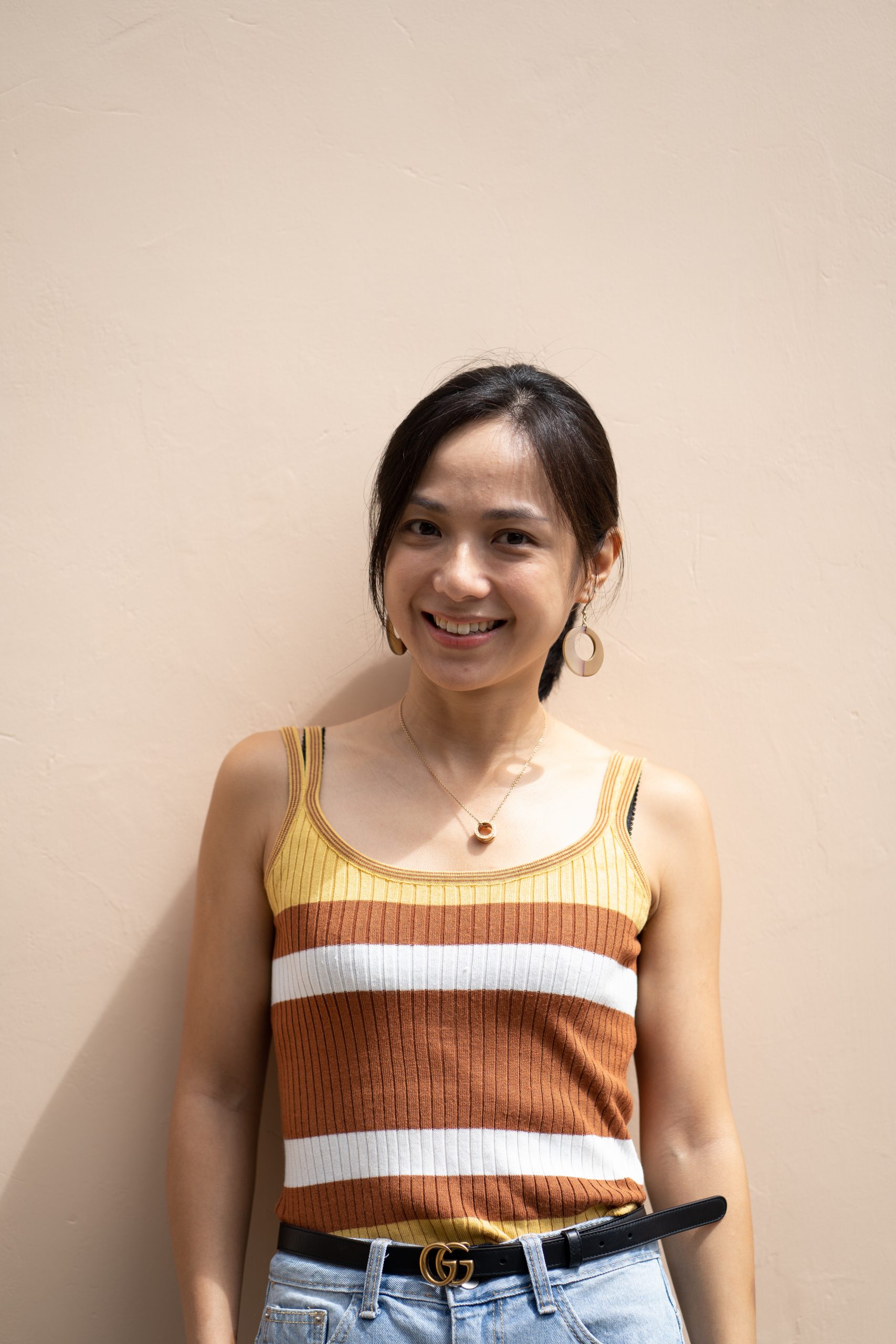
This year’s COVID-19 pandemic has seen many people across the world achieve ‘hero’ status. Some are battling on the frontlines in hospitals and care homes but others may not be so obvious. For instance, every shopkeeper who deals with the public every day could be described as a hero. They don’t have to man their counters and sell their goods but they continue to do so in a bid to make sure other people are able to get their essentials. Vivi Cheung, the charitable founder of healthy lifestyle store Still Natural Organic Shop near the Rotunda de Carlos da Maia in the heart of Macao, is one of these ‘heroes’. During the height of the COVID-19 outbreak in Macao, she went above and beyond in her role as shopkeeper.
In the earlier days of the outbreak, some hygiene products disappeared from shelves in the city due to high demand. Soaps, hand sanitisers, disinfectants and other items became hard to obtain for some residents but Cheung was one of those kind-hearted shopkeepers who went out of her way to order as many products from overseas as she could for her local community. She brought in facemasks, sprays, sanitisers and as much as she could get of anything she thought could be of use.
As Macao went into lockdown, Cheung, who prefers not to mention her exact age, spent hours on the phone and on her computer. She called and emailed whoever she could across the world before eventually nailing down a supplier in Turkey. She admits she spent ‘days and nights’ pursuing products for her community, knowing she would be selling some and then giving the rest away to charity. She even travelled to Hong Kong by herself several times before the borders were closed, purchasing as many products as she could carry home, especially when she learned that some of her orders from Turkey would not be arriving in Macao on time due to flight cancellations. “For more than 10 days,” she says, “my assistant and I barely slept for more than three hours a day. It was exhausting but it was worth it so we could get as many products as we could for those people in our community who needed them.”
In March, Cheung had managed to stock her shop with 150,000 bottles of hand sanitisers, 60,000 facemasks and 2,000 bottles of anti-virus disinfectant sprays. After settling the pre-orders from her clients, she donated 20,000 facemasks and more than 5,000 bottles of hand sanitisers to charities such as the Fuhong Society of Macau, which caters for people with intellectual disabilities and mental illnesses, and the Macau Federation of Trade Unions, which represents workers in different industries in the city. At the same time, she also set up a WhatsApp group for medical workers in Macao. Many joined and were given priority for the purchase of facemasks, hand sanitisers and many other essential products. Cheung only sold them at cost price. “I just wanted to express my gratitude to their contributions to our society,” she says. “They were fighting on the frontlines and faced the biggest risks.”
“Putting my best efforts into helping others – this is my motto,” continues Cheung. “I did not want to just open a shop to make a living. I wanted to give back to society. That’s why I’ve tried so hard to render my contributions during the Covid-19 outbreak. The real heroes are on the frontlines but if you’re calling all of the shopkeepers who tried to get essential products out to customers and charities ‘heroes’, then collectively we appreciate the recognition. Soon, though, I hope the pandemic is over so I can then take a break and go on holiday!”
Sources of inspiration
Macao Magazine has regularly published stories on the city’s talented young people over the past year, from the creative young artists to the entrepreneurial young businesspeople. In this issue, we wanted to mark the extraordinary efforts of those young people who stepped up and became a ‘hero’ through an act or acts of utter selflessness. Ada Lo, a charity professional who has worked closely with various local NGOs in the city since 2003, agrees with us. She says that publishing ‘the heroic stories of these young people’ can ‘spread positive energy and inspire more acts of kindness in society’.
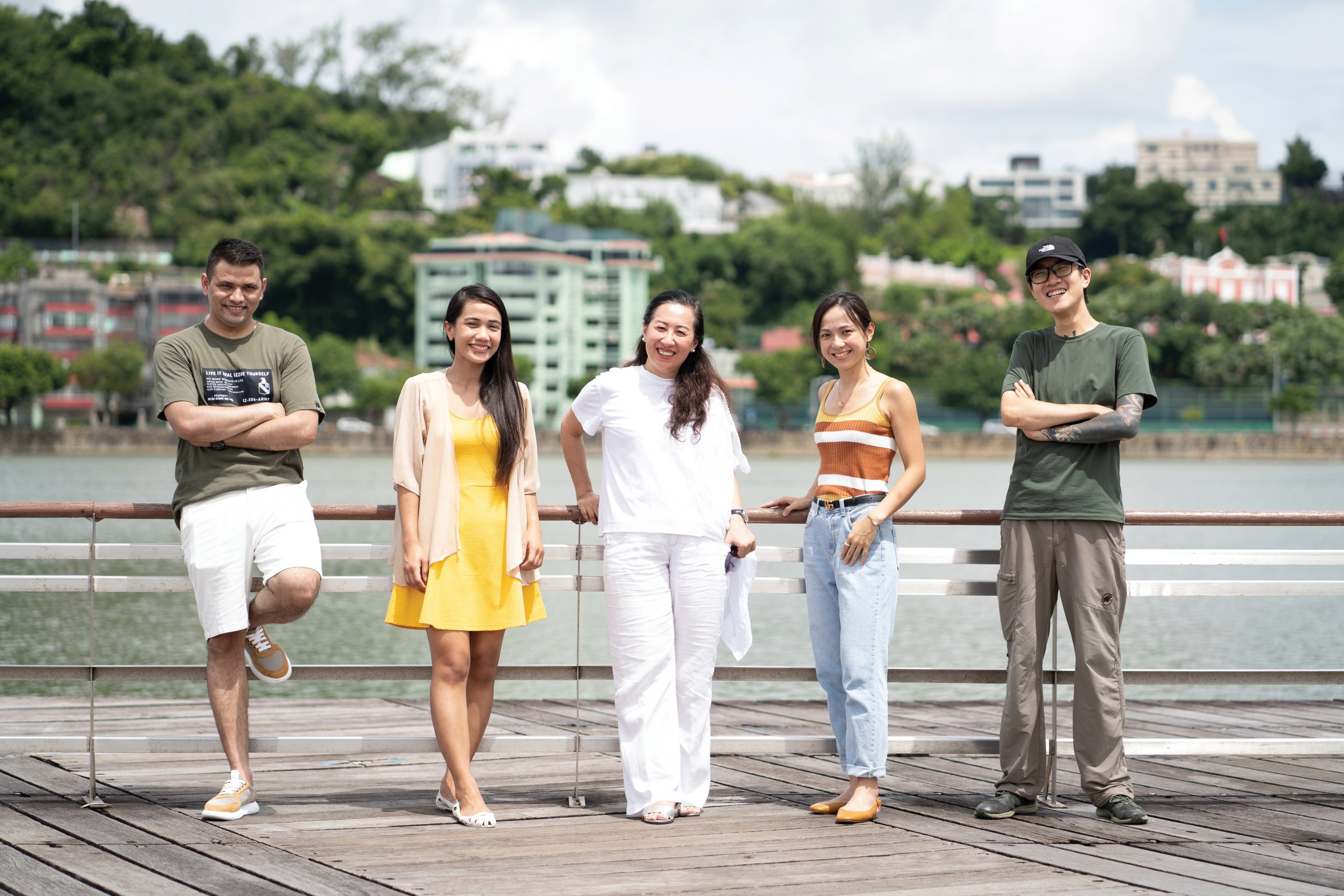
“It takes a lot of courage,” says Lo, “to take proactive steps to help others. But the stories Macao Magazine has published here demonstrate that being kind-hearted is not a lonely path. It’s a path filled with other kind-hearted people who also care for society and for each other. These young people who do something extraordinary for someone else provide hope for those in need. They are all real-life heroes.”
Lo is the general-secretary of the Macau Special Olympics, an organisation that serves athletes with intellectual disabilities, as well as the vice-chairperson of the supervisory board for the Women’s General Association of Macao, which aims to promote the rights and welfare of women and children in the city. She says she comes across young heroes every day, adding that many of Macao’s young people ‘understand that it’s better to give than receive’. “You can gain so much satisfaction from what you do for others,” she says. “It will motivate you to keep going and overcome bigger challenges, making your life more complete.”
As for how to cultivate kindness and selflessness in a commercial city like Macao, Lo believes it all starts from an early age. “Parents and teachers need to start imparting these values to children before they reach 10 years old,” says the mother-of-three. “They need to engage them in charity and volunteer work and explain to them what values these acts represent. By doing this, we can plant a seed in their hearts and guide a whole generation of young people to become extraordinary heroes, serving the good of Macao and its people for years to come.”
The COVID-19 hero
She may not live in Macao any more but Zoe Sou has been on the frontlines in Wuhan since the start of the pandemic.
Since the turn of the millennium, few international events have affected the lives of almost every single person on the planet quite like the COVID-19 pandemic has done. Hundreds of thousands of people across the world have died from the virus and it’s still running rampant in some countries. Macao may not have been greatly affected in terms of individual lives – but at the start of the year, as the first cases were reported, thousands of medical professionals in the city had to make impossible choices and put the safety of other people before the concerns of both themselves and their families. One of these brave people was Zoe Sou.
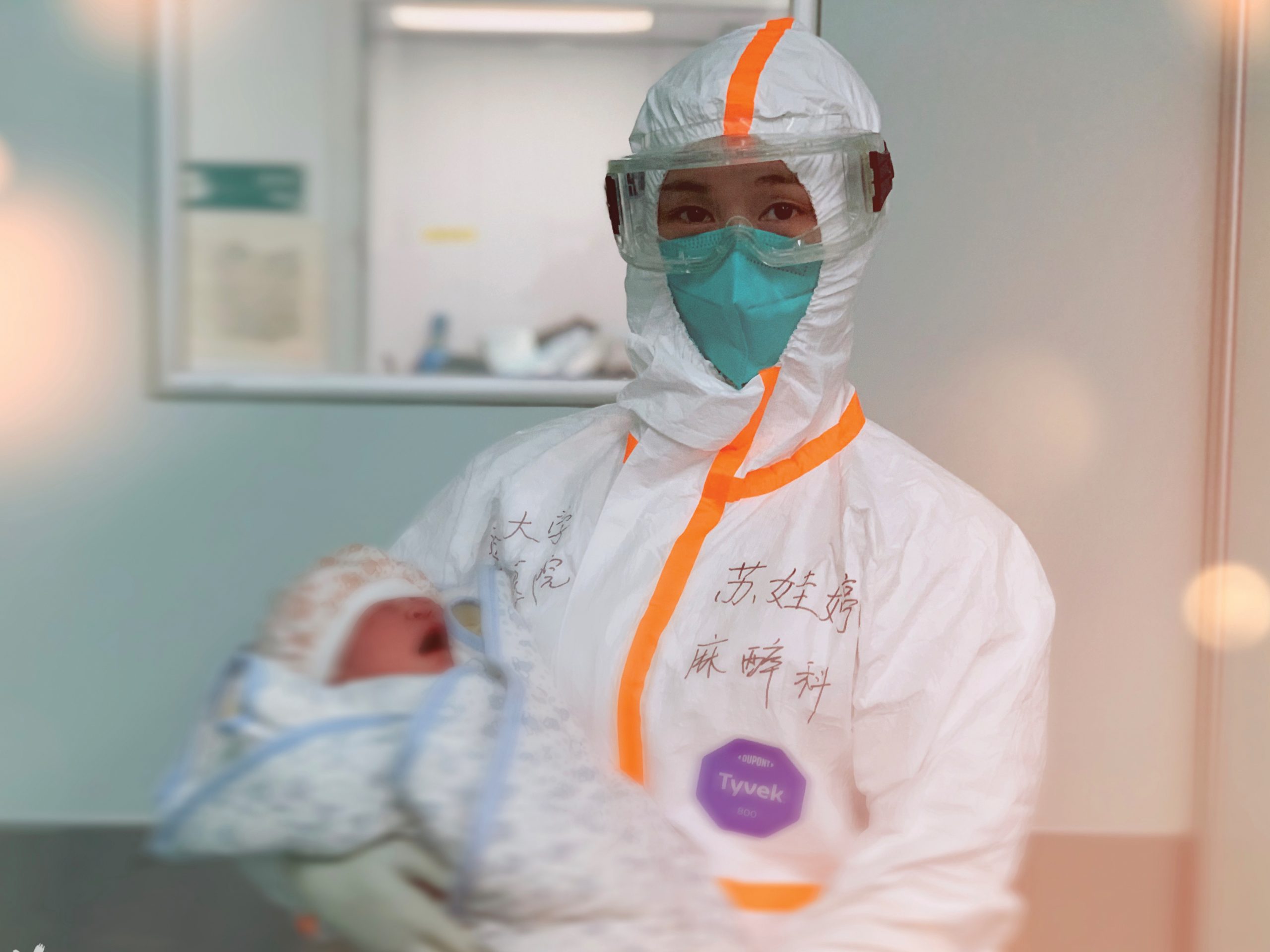
Sou, who grew up in Macao, has worked in the anesthesiology department of Wuhan University’s Renmin Hospital since 2013, after graduating from the university. She is a former Macao resident who now lives and works in Wuhan with her husband, a doctor in the same department. The pair, who have a five-year-old son and two-year-old daughter, met at the university before they were married in 2013.
Prior to COVID-19, life was rosy for 34-year-old Sou but in January, her life was turned upside-down. She had returned to Macao with her son and daughter to celebrate the Chinese New Year with her parents while her husband stayed in Wuhan. However, when the central government announced the lockdown of Wuhan in an attempt to stop the spread of the virus on 23 January, her festive mood was replaced by overwhelming worries about the rapidly worsening situation in Wuhan.
Sou stayed in Macao, monitoring the situation for a couple of months. But in early March, the doctor had to make an impossible decision. Did she stay in Macao with her family or take her children to a possible COVID-19 danger zone for what could be months so she could help her colleagues in Wuhan save lives? On 16 March, Sou made her courageous decision and took her son and daughter by train to Wuhan to rejoin her husband and to join the fight against COVID-19. The next day, she was back at her post in the hospital in full protective gear. She admits that her parents were against the decision but she told them ‘as a doctor, I need to take care of my patients. This is my identity and my responsibility’. She also says that her children went into isolation at her Wuhan home and were kept safe during the outbreak.
According to Sou, the most dangerous job she did in March was to conduct intubations. This involves inserting a tube into a patient’s body after they have been anaesthetised. Sou says that some of the patients she dealt with were in such a critical condition that they needed to be intubated immediately, without having the time to take a virus test – meaning that, in many cases, the doctors had no idea as to whether a patient had COVID-19 or was suffering from another condition. It added an extra layer of stress for all the doctors, according to Sou. “I conducted intubations three to five times a day,” she recalls. “We only have 15 seconds to insert a tube so we needed to be fast and accurate but the patients all had a strong will to survive. We needed to help them buy time and prolong their life.”
China finally ended its months-long lockdown of Wuhan in April. But Sou continued to work at the hospital. She admits her work ‘remained challenging’ even as no new cases were reported. “A lot of patients with severe illnesses, such as brain cancer,” she explains, “could not come to the hospital during the peak of the outbreak. So as soon as it was over, they all came in for treatments en masse, which made it an equally challenging time.”
Sou is still working on the frontlines in Wuhan. There were ‘clusters’ of cases in the city a few months back but she says the situation has been ‘stable’ of late, adding that it hasn‘t been as worrying as it was towards the start of the year. She says, however, that she remembers the fear she experienced when she thinks about the scenarios in the hospital during the outbreak’s peak. The patients who were dying and the families that could not be with their loved ones. But she also recalls how the fear would subside once she put on her doctor’s gown. “There was just no time to think once I started work each day,” she says. “Everything I ever do is driven by my instinct as a doctor, which is to save people.” This attitude is what makes Sou a young hero. But she’s not alone – all the doctors and nurses across the world who have fought COVID-19 are heroes.
